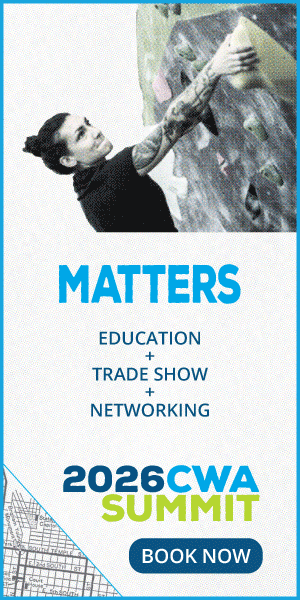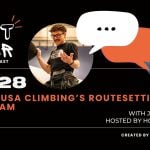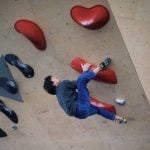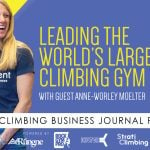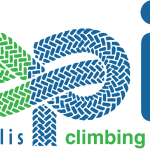Behind the Closures…is a series that interviews professionals in the climbing industry during the Coronavirus (COVID-19) crisis—and looks at how the situation is impacting gyms, companies and communities in various regions.
For this installment, CBJ talks with the CEO of Friction Labs about how the pandemic is affecting chalk production. [Note: For additional information on the topic of liquid chalk and the Coronavirus, check out a recent Gym Climber article on the topic here.]

Name: Kevin Brown
Title: Co-Founder and CEO, Friction Labs
Location: Denver, Colorado
CBJ: Every business has been negatively impacted, but within that there are polarities…gyms have been totally walloped and closed, whereas some home wall companies are managing to weather the storm. Where does Friction Labs fit into that?
BROWN: We’re doing a small fraction of the sales that we were doing prior to the shutdown. It’s greatly diminished. We’ve kept our whole team on—10 people total. We’re not what the Governor of Colorado deemed an essential business, meaning that we are allowed to perform minimum business operations as long as we practice safe social distancing and have a safe work environment. For example, if we get online orders, we’re allowed to ship them. One person will go in and do the shipping so that nobody else has to deal with that stuff. And everyone else we’ve set up as remote workers. If they didn’t have a computer, we got them a computer.
We took our production team—obviously there’s no reason to produce more right now—so I trained them up as sales people. We did virtual training on how to be sales reps. Then we started reaching out to CrossFit and chalk-using businesses (aside from climbing gyms), sort of an affiliate model where they can recommend our product and make a small commission if someone uses a coupon code, which helps them earn a little bit of income even while their gyms are closed. We haven’t laid off anyone or furloughed anyone, so what we’re doing right now isn’t sustainable, but fortunately we were in a good position going into this. We’ve always been financially conservative and tried to put money away for a rainy day, so we can weather the storm—hopefully.
The majority of our sales happen at climbing gyms. It’s like selling golf balls. Golf Galaxy sells some golf balls, but the majority of sales take place at golf course pro shops because when someone goes golfing they need to get their golf balls. Same thing for us. So when gyms close, that pretty much tanks our business.
CBJ: In terms of turning to CrossFit and whatnot, it sounds like you have just branched out a little bit and looked to new avenues out of necessity, is that fair to say?
BROWN: Yeah, and I think the big thing out of necessity is that we’ve created a new product: the world’s first Hygienic Chalk. We’ve taken our Secret Stuff, our alcohol-based liquid chalk, and we’ve developed a formula that has 80-percent ethyl-alcohol. And right now we’re working with gyms to take pre-orders so that we can ship in May. The new liquid chalk meets the CDC, WHO and FDA recommendations for the amount of alcohol to be hygienic. It’s not a hand sanitizer. We can’t say it’s a hand sanitizer—it is legally not—because we add an inactive ingredient, which is chalk. But for all intents and purposes, we’re hoping it can serve like a combination of chalk and hand sanitizer. We just can’t say it’s a hand sanitizer. But it will be the most hygienic chalk you can get.

CBJ: I’m glad you bring that up because I’ve read a lot online about whether liquid chalk, which is alcohol-based, might kill germs.
BROWN: Far and away, most of the liquid chalk that is currently available on the market would not. Most liquid chalk out there is below 40-percent alcohol. Our Secret Stuff right now is, like, 45-percent. So it’s OK but it’s not good enough [to kill germs] based on the recommendations that are out there.
CBJ: And what will this new Friction Labs liquid chalk with more alcohol be called?
BROWN: Right now it’s just Secret Stuff 80. And honestly, I don’t envision this being a forever-product. We started working with some of our climbing gym partners, and even before the shutdown we had gyms reaching out asking if there was anything we could do to help them. So we gave some discounts on our liquid chalk, we gave credit for future orders so that gyms could hand out liquid chalk to members. It was less about being hygienic and more about giving gyms some sort of proactive tactic—so they could show their customers that they were doing something to try and provide a safe place.
That’s the same spirit with this new Secret Stuff 80. We haven’t had it FDA-tested. We are not making any claims about what it can or cannot do. I know that there are die-hard climbers who would jump through hoops to climb right now, but there’s the overwhelming majority of people who aren’t necessarily convinced that climbing gyms will be safe places. So hopefully this product will be just one of many tactics that gyms can use to invest in hygiene and persuade their customers to come back in and start spending money at the gym—so that gyms can continue to stay in business and people can start climbing again.
[adning id=”19811″]
CBJ: I think that psychological barrier that many people will have is going to be a huge hurdle for gyms.
BROWN: Think about it—everything in a gym is shared: ropes are shared; there are rental harnesses, rental shoes, rental chalk; everyone’s climbing on the same holds. If you’re climbing on a lead rope, people are putting that rope in their mouth. That all presents a really unique challenge for climbing gyms compared to traditional fitness gyms. Take, for example, a CrossFit box. You could wipe down that box, and you could wipe down all of the kettlebells and barbells in between classes and it wouldn’t be that big of a challenge. You can’t do that with climbing.
Also think about how many materials in climbing you can’t even subject to cleaning products like bleach or any of the hardcore disinfectants. If you put bleach on a climbing rope, I can’t imagine that thing will continue to be sound. And think about normal gyms—people come in, they get their workout. Maybe they get chatty in the locker room or something like that. But at a climbing gym, people are communicating the whole time. It’s as social as it is physical.
CBJ: I think we have all done the rundown of gym-related questions at some point over the past few weeks, and it can get frustrating because there just aren’t any answers.
BROWN: Yes, and we’re starting to hear about states opening up or at least talking about opening up, and I haven’t seen one state that has any clear guidance on how gyms should open. You and I know the difference between a fitness gym, a trampoline gym, a CrossFit gym and a climbing gym, but do legislators?
CBJ: Friction Labs has a pretty big social media presence and a fair amount of sponsored athletes and influencers. What has been your company’s strategy with social media amid all these closures?
BROWN: We haven’t posted any new or current outdoor climbing content. We do a lot of athlete takeovers on our Instagram profile. So, when athletes do a takeover, we say, “Talk about your current situation and let’s celebrate one of your last trips so we can keep people excited about climbing and give them some inspirational images.” But usually in the words for the captions underneath, it is very clear that the trip was before the COVID shutdown.
You see some big brands out there that make a few social media posts urging people to stay home, but 90 percent of their content is urging people to buy their product—in order to go climbing. But nobody is supposed to be climbing right now. So I feel like that’s really irresponsible because brands have such a big platform to reach so many people and reinforce the larger message.
At Friction Labs, we’ve posted, “Stay home.” We’ve worked with Alex Puccio and Robin O’Leary to create a “How to Train at Home” workout program. We paid them—and then provided the content for free. We’ve provided hangboard workouts. We’ve done anything we can to help celebrate what everyone is going through right now because we are climbers and we are going through it too. I’ve got my fingerboard and I do my home workouts, and I haven’t touched plastic or gone to rocks in a long time. I told everyone in my company, “You’re not going out—because you represent the company and I don’t want to deal with a PR issue because you decided you want to go out and get a burn on your project.”
Friction Labs is going to support our gym partners, and we’re going to all try to get through this together.
Share your story
Are you leading a climbing gym or brand through this unprecedented period of gym closures? Or, do you work for a gym or company that is now closed and have a story that others could benefit from hearing? If so, please contact us and tell us about it.



